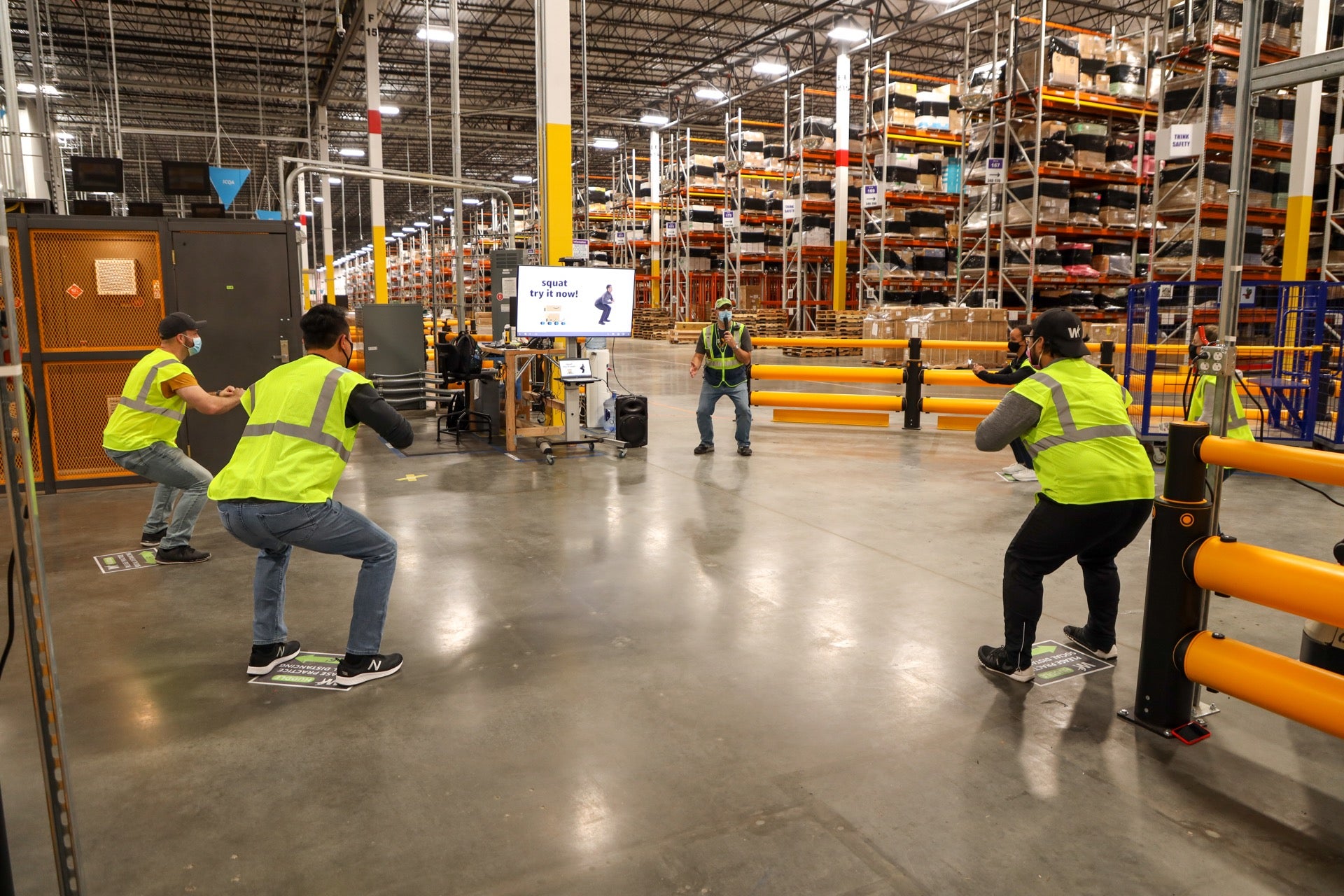
Ecommerce leviathan Amazon expects work in its warehouses to burn 400 calories per hour, according to a leaked wellness pamphlet. For comparison, that’s a similar work rate to being a galley slave.
The pamphlet was leaked to Motherboard. It refers to fulfilment centre employees as “industrial athletes”, which may seem apt given the gruelling schedule they’re on is akin to going through an intense workout session. It says workers should be prepared to walk “up to 13 miles a day” and lift “a total of 20,000 pounds” during a shift.

Access deeper industry intelligence
Experience unmatched clarity with a single platform that combines unique data, AI, and human expertise.
“Here at Amazon, you will become an industrial athlete. Just like an athlete who trains for an event, industrial athletes need to prepare their bodies to be able to perform their best at work,” the Amazon pamphlet reads. “We want to make sure you feel your best while doing your best!”
The pamphlet dates back to 2020 when the $1.6tn company trialled its new Working Well programme across different warehouses in the US. The initiative is part of Amazon efforts to clean up perceptions that it forces employees to work at breakneck speed to meet quotas.
While the tech titan claims to provide ample toilet break opportunities, its drivers have been reduced to urinating in plastic bottles and defecating in plastic bags to keep up with their schedules. Amazon has also faced allegations about illegally throttling unionisation attempts earlier this year.
The leaked wellness pamphlet aims to prepare workers for a day in a warehouse by sermonising about the benefits of hydration, sleep, footwear, ergonomic work behaviour, injury prevention and nutrition.

US Tariffs are shifting - will you react or anticipate?
Don’t let policy changes catch you off guard. Stay proactive with real-time data and expert analysis.
By GlobalData“Don’t start work on an empty tank,” the pamphlet reads. “Make sure you eat no less than two hours prior to your shift. On average you are burning about 400 calories every hour. Fatigue is often a large factor in injuries. You need to replenish calories throughout the day to stay energised.”
In comparison, one hour of light free weight lifting burns 425 calories, according to fitness-tracking app LifeSum. Similarly, an hour of medium impact badminton, 30 minutes of high impact bicycling and an hour of pilates burn 534, 667 and 361 calories respectively, according to the app.
Rowing at a sustainable rate, the sort of work performed by galley slaves in olden times, will burn 451 calories per hour in the case of an average American man weighing 199.8 pounds.
The Working Well initiative, which the pamphlet was part of, is key in Amazon’s public effort to save its image and make the public forget about the fact that its workers were severely injured more than 24,000 times in 2020, twice the rate of the rest of the US-based warehouse industry, according to the Strategic Organizing Centre, a labour union coalition.
However, the Working Well programme has not gone down well so far. The online shopping giant faced a public backlash last week after it shared a video of its AmaZen booth which stressed out workers could go into to boost their wellbeing.
The so-called “ZenBooth” or “Mindful Practice Room” is a small cubicle roughly the size of your average porta potty. Workers venturing inside can sit down on an office chair and watch guided meditation videos on a computer.
The Amazon AmaZen booth was co-developed by Amazon worker Leila Brown.
“With AmaZen, I wanted to provide a place that’s quiet, that people could go and focus on their mental and emotional wellbeing,” she said in a video shared by Amazon on Twitter.
The Twitterati replied to the video with ridicule, referring to the AmaZen booths as “cry closets” and “scream boxes”. Amazon consequently removed the video from Twitter.
The news comes as gig economy companies are increasingly being criticised, as noted in GlobalData‘s recent thematic research report from.
Uber and Deliveroo have both suffered from this lately. Uber has been forced to recognise its UK drivers as employees and Deliveroo had to lower the price of its public debut after top investors expressed concerns about its gig economy model.







